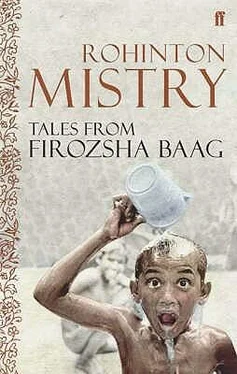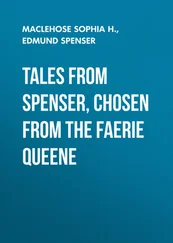Rohinton Mistry - Tales From Firozsha Baag
Здесь есть возможность читать онлайн «Rohinton Mistry - Tales From Firozsha Baag» весь текст электронной книги совершенно бесплатно (целиком полную версию без сокращений). В некоторых случаях можно слушать аудио, скачать через торрент в формате fb2 и присутствует краткое содержание. Год выпуска: 2006, Издательство: Faber & Faber, Жанр: Современная проза, на английском языке. Описание произведения, (предисловие) а так же отзывы посетителей доступны на портале библиотеки ЛибКат.
- Название:Tales From Firozsha Baag
- Автор:
- Издательство:Faber & Faber
- Жанр:
- Год:2006
- ISBN:нет данных
- Рейтинг книги:3 / 5. Голосов: 1
-
Избранное:Добавить в избранное
- Отзывы:
-
Ваша оценка:
- 60
- 1
- 2
- 3
- 4
- 5
Tales From Firozsha Baag: краткое содержание, описание и аннотация
Предлагаем к чтению аннотацию, описание, краткое содержание или предисловие (зависит от того, что написал сам автор книги «Tales From Firozsha Baag»). Если вы не нашли необходимую информацию о книге — напишите в комментариях, мы постараемся отыскать её.
Tales From Firozsha Baag — читать онлайн бесплатно полную книгу (весь текст) целиком
Ниже представлен текст книги, разбитый по страницам. Система сохранения места последней прочитанной страницы, позволяет с удобством читать онлайн бесплатно книгу «Tales From Firozsha Baag», без необходимости каждый раз заново искать на чём Вы остановились. Поставьте закладку, и сможете в любой момент перейти на страницу, на которой закончили чтение.
Интервал:
Закладка:
But this kind of smug socialism did not come till much later. First we had to reckon with school, school uniforms, brown paper covers for textbooks and exercise books, and the mad morning rush for the school bus. I remember how Percy used to rage and shout at our scrawny ghaton if the pathetic creature ever got in his way as she swept and mopped the floors. Mummy would proudly observe, “He has a temper just like Grandpa’s.” She would also discreetly admonish Percy, since this was in the days when it was becoming quite difficult to find a new ghaton , especially if the first one quit due to abuse from the scion of the family and established her reasons for quitting among her colleagues.
I was never sure why some people called them ghatons and others, gungas . I supposed the latter was intended to placate — the collective conferment of the name of India’s sacred river balanced the occasions of harshness and ill-treatment. But the good old days, when you could scream at a ghaton that you would kick her and hurl her down the steps, and expect her to show up for work next morning, had definitely passed.
After high school, Percy and Jamshed went to different colleges. If they met at all, it would be at concerts of the Bombay Chamber Orchestra. Along with a college friend, Navjeet, and some others, my brother organized a charitable agency that collected and distributed funds to destitute farmers in a small Maharashtrian village. The idea was to get as many of these wretched souls as possible out of the clutches of the village money-lenders.
Jamshed showed a very superficial interest in what little he knew about Percy’s activities. Each time they met, he would start with how he was trying his best to get out of the country. “Absolutely no future in this stupid place,” he said. “Bloody corruption everywhere. And you can’t buy any of the things you want, don’t even get to see a decent English movie. First chance I get, I’m going abroad. Preferably the U.S.”
After a while, Percy stopped talking about his small village, and they only discussed the concert program or the soloist’s performance that evening. Then their meetings at concerts ceased altogether because Percy now spent very little time in Bombay.
Jamshed did manage to leave. One day, he came to say goodbye. But Percy was away working in the small village: his charitable agency had taken on the task full time. Jamshed spoke to those of us who were home, and we all agreed that he was doing the right thing. There just weren’t any prospects in this country; nothing could stop its downhill race towards despair and ruin.
My parents announced that I, too, was trying to emigrate, but to Canada, not the U.S. “We will miss him if he gets to go,” they told Jamshed, “but for the sake of his own future, he must. There is a lot of opportunity in Toronto. We’ve seen advertisements in newspapers from England, where Canadian Immigration is encouraging people to go to Canada. Of course, they won’t advertise in a country like India — who would want these bloody ghatis to come charging into their fine land? — but the office in New Delhi is holding interviews and selecting highly qualified applicants.” In the clichés of our speech was reflected the cliché which the idea of emigration had turned into for so many. According to my parents, I would have no difficulty being approved, what with my education, and my westernized background, and my fluency in the English language.
And they were right. A few months later things were ready for my departure to Toronto.
Then the neighbours began to arrive. Over the course of the last seven days, they came to confer their blessings and good wishes upon me. First was Bulsara Bookworm’s mother, her hair in a bun as usual and covered with the mathoobanoo . She said, “I know you and Jehangir were never very good friends, but that does not matter at a time like this. He says best of luck.” She put her arm over my shoulder in lieu of a hug and said, “Don’t forget your parents and all they did for you, maintain your good name at all times.”
And Tehmina, too, using the occasion to let bygones be bygones with Mummy and Daddy, arrived sucking cloves and shuffling in slippers and duster-coat. Her cataracts were still a problem, refusing to ripen, she said.
Then one morning Nariman Hansotia stopped me in the compound. He was on his way to the Cawasji Framji Memorial Library, and I to the airline office for a final confirmation of my seat.
“Well, well,” he said, “so you were serious when you used to tell everyone that you would go abroad. Who would have thought of it! Who would have imagined that Silloo Boyce’s little Kersi would one day go to Canada. Knee high I had seen you, running around in the compound with your brother, trying to do everything he did. Well, lead a good life, do nothing to bring shame to you or the Parsi community. And don’t just land there and say, where are the girls? like this other chap had done. Did I ever tell you that story?”
And Nariman launched into an anecdote: “A sex-crazy young fellow was going to California. For weeks he used to tell his friends about how the women there went around on the beaches with hardly any clothes on, and how easy it was to find women who would go with you for a little bit of this and that, and what a wonderful time he was going to have as soon as he got there. Well, when he landed at Los Angeles, he tried to joke with the immigration officer and asked him, ‘Where are the girls?’ What do you think happened then?”
“What, Nariman Uncle?”
“He was deported on the very next plane, of course. Never did find out where the girls were.”
Good old Nariman Uncle. He would never stop telling his tales. We finally parted, and as he pulled out of the compound in his old Mercedes-Benz, someone called my name from the ground floor of A Block. It was Rustomji-the-curmudgeon, skulking in the shadows and waiting for Nariman to leave. He shook my hand and gruffly wished me well.
But as I slept on my last night in Bombay a searing pain in my eyes woke me up. It was one o’clock. I bathed my eyes and tried to get back to sleep. Half-jokingly, I saw myself as someone out of a Greek tragedy, guilty of the sin of hubris for seeking emigration out of the land of my birth, and paying the price in burnt-out eyes: I, Tiresias, blind and throbbing between two lives, the one in Bombay and the one to come in Toronto …
In the morning, Dr. Sidhwa arrived and said it was conjunctivitis, nothing very serious. But I would need some drops every four hours and protective dark glasses till the infection was gone. No charge, he said, because he was going to drop by anyway to say goodbye and good luck.
Just before noon came Najamai. She must have been saving herself for an auspicious chogeryoo . She sympathized about my eyes before bringing forth her portable celebration kit: a small silver thaali holding a garland, and a tiny cup for the vermilion. They were miniatures of her regular apparatus which was too heavy to lug around. She put the garland round my neck, made a large, bright red teelo on my forehead and hugged me several times: “Lots and lots of years you must live, see lots of life, study lots, earn lots, make us all very proud of you.”
Then Najamai succumbed to reminiscing: “Remember when you used to come upstairs with the meat? Such a good boy, always helping your mother. And remember how you used to kill rats, with your bat, even for me? I always used to think, how brave for such a small boy to kill rats with a bat. And one day you even ran after Francis with it! Oh, I’ll never forget that!”
She left, and Daddy found me a pair of dark glasses. And thus was spent my last day in Bombay, the city of all my days till then. The last glimpses of my bed, my broken cricket bat, the cracks in the plaster, the chest of drawers I shared with Percy till he went away to the small village, came through dark glasses; the neighbourhood I grew up in, with the chemist’s store (“Open Twenty-Four Hours”), the Irani restaurant, the sugar-cane juice vendor, the fruit-and-vegetable stall in Tar Gully, all of these I surveyed through dark glasses; the huddle of relatives at the airport, by the final barrier through which only ticket holders can pass, I waved to and saw one last time through dark glasses.
Читать дальшеИнтервал:
Закладка:
Похожие книги на «Tales From Firozsha Baag»
Представляем Вашему вниманию похожие книги на «Tales From Firozsha Baag» списком для выбора. Мы отобрали схожую по названию и смыслу литературу в надежде предоставить читателям больше вариантов отыскать новые, интересные, ещё непрочитанные произведения.
Обсуждение, отзывы о книге «Tales From Firozsha Baag» и просто собственные мнения читателей. Оставьте ваши комментарии, напишите, что Вы думаете о произведении, его смысле или главных героях. Укажите что конкретно понравилось, а что нет, и почему Вы так считаете.












